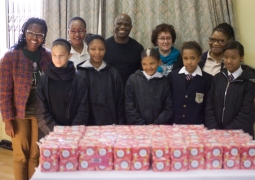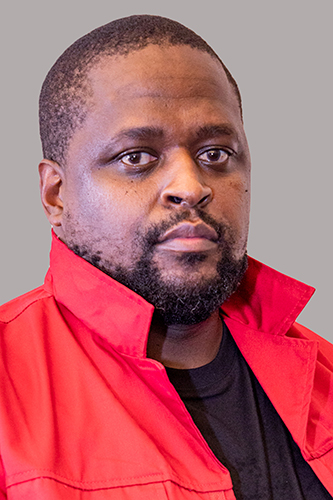
The Mandela Month of goodwill may have come to an end, but its spirit still prevails and pervades our country. To conclude its Mandela Month programme in hour of Nelson Mandela’s selflessness the Chairperson of the National Council of Provinces, Ms Thandi Modise, handed over the much-needed sanitary towels to Dominican School for Deaf Children in Wittebome near Wynberg today.
The Chairperson’s gift of goodwill to the school was timely because it is responsive to what has become a topical issue in the country. It is believed that up to nine million young girls aged between 13- and 19 years miss up to a week of school because their families cannot afford to buy them sanitary towels.
The Chairperson’s pledge was embraced with great warmth and gratitude by the Principal of the School, Ms Lucinda Rutter, who said:.“We are honoured and feel privileged to have been identified as the recipient of this gesture of goodwill by the Chairperson of the National Council of Provinces (NCOP). This gesture could not have come at a right time, the issuing of sanitary towels to our pupils will go a long way in restoring their dignity and self-worth. Thank you to the Chairperson of the NCOP for such kindness.”
But most significantly, her stately visit coincided with the 80th anniversary of the school, she said. “The NCOP’s visit is apt because it comes in a year that marks the 80th anniversary of our school. In that, this visit has added great value to the history of our school because this is one of the high-profile visits it has had in its 80 years of existence,” she said.
But there is nothing that makes the school anniversary more meaningful than the fact that the sign language, its medium of instruction, will eventually be recognised as one of the official languages of our country, she said. “At last we feel that our existence has been officially accepted. And this will instil in our society at large an appreciation of what deaf people are capable of.”
In her address, the Chairperson of the NCOP proclaimed that when women get to labour they are often told to be grateful if their newborn babies have full sets of toes, arms, eyes and can hear. That should not be the case, she said. “In fact, what we must be grateful of is that we are enriched by each and every newborn baby in whatever form of its creation because we are all created in the image of God. The world should accept the fact that we are born and gifted differently. This utterance that women are often confronted with during their labour serves to show that we have been slow in embracing and acknowledging our diversity.”
As such, no one must feel ashamed or be discriminated against because of how he or she was born, she said. “The onus is upon every one of us to understand you and to ensure that every opportunity is availed to you.”
Referring to her gift of goodwill to the school, she said: “When a child misses class because she does not have sanitary towels and does not perform well as a result of that, that is not that child’s problem, it is the country’s problem.”
She warned the girls that when they reach the stage of using sanitary towels, they reach the stage of womanhood and their behaviour should change to embrace their coming of age. “When you reach the stage you are in, you must begin to face life and embrace the challenges of womanhood differently – and with caution because you are now capable of bearing a child."
“But as school kids you must focus your attention not on your womanhood, but on how to conquer your battles in life. To prepare yourselves for your battles in life, you must identify your heroines and follow in their foot-steps. Every girl must identify her heroine. A heroine of its people, nation or country and must follow in her (heroine’s) footsteps. But most of all, embrace your battles with courage. Never say I am deaf and less of a human being. Aim to win every battle that comes your way in life, but do so steadily step by step and you will be victorious,” she said.
In keeping with Mandela’s selflessness, we should all strive to emulate what he set out to do, she told them. “We tend to forget that Mandela’s life-long project was about non-racialism, non-sexism and that he recognised and protected every citizen. And he stood for our rights, whether we are hard of hearing or not, have mental challenges or not, he reminded us that we are all South Africans and we must be proud of ourselves.”
By Abel Mputing
4 August 2017

